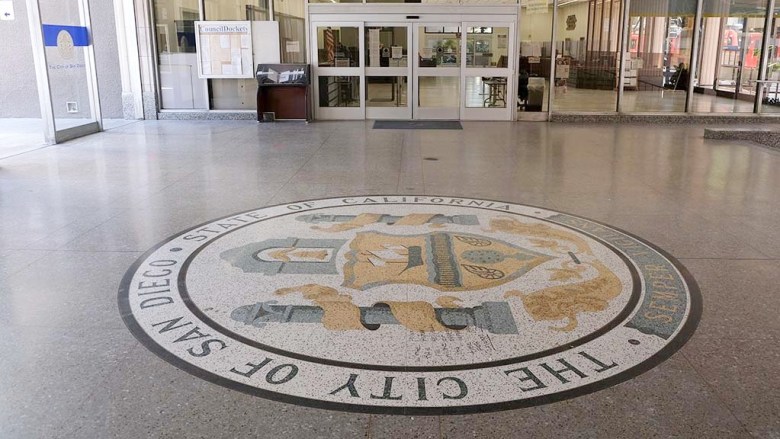
The city budget for the 2025 fiscal year presents a pivotal moment for elected officials to prioritize San Diego’s welfare over special interest groups. However, calls by City Council President Sean Elo-Rivera and other lawmakers to impose new taxes have raised severe concerns about our local elected officials’ accountability.
Past leaders have made regrettable real estate decisions. Unfortunately, our current leaders have replicated these errors by deferring maintenance on critical infrastructure and making poor real estate decisions, as evidenced by the 101 Ash Street fiasco. The question on everyone’s mind is whether the 1,000-bed mega shelter will become another real estate scandal.
The details of this big homeless shelter remain opaque, and regrettably hark back to a time when San Diego was dubbed the “Enron by the sea.” San Diego’s current deficit of millions of dollars is partly due to past city leaders, but it is unfair to blame them solely. Our current city leaders share this responsibility.
As an example, it is disheartening to note a lack of significant efforts to address infrastructure issues during the past three-plus years. Infrastructure now looks like the buzzword, but only after the January storm revealed how our storm channels were poorly maintained.
The neglect of critical infrastructure is not just an inconvenience. It has direct, tangible effects on our residents’ daily lives and safety. The lack of streetlights threatens our citizens’ security, and the poor condition of our roads leads to increased vehicle maintenance costs for families.
These are not just numbers on a budget sheet but real problems that our residents face every day. It’s urgent for us to address these issues, and it’s disheartening that these infrastructure injustices have not been handled responsibly.
The other buzzword circulating in the city is the need for additional tax revenue. San Diegans do not want to pay more taxes to receive “world-class” service. However, San Diegans expect dependable and affordable service. It is plausible for the people of our great city to question why they should approve additional taxes when the dity continues to spend carelessly.
It seems like a failure in fiduciary responsibility when the city keeps spending money it does not have. This highlights the need for accountability and responsible spending, which should be a priority for our city leaders. If the city cannot afford to fund all of the programs fully, we expect city officials to act responsibly and make realistic decisions.
I see the hardship daily in the store, at a gas station, or just getting coffee. The people of our city are suffering, and with the price of everyday commodities rising, families are making tough decisions about what they can and cannot afford. Who will be hurt the most by these additional taxes? The burden of the additional proposed taxes will fall on the families with the least — the lower-income families will hurt the most.
A stormwater tax will be paid by all residents, homeowners and even renters, because landlords will potentially force the tax on their tenants. A one-cent sales tax will hit every San Diegan. However, the lower-income households may not have the means to shop outside the city limits, where the sales tax is lower in neighboring cities.
San Diego Gas & Electric is adding a line-maintenance charge every month. The city’s water and sewer rates are increasing, and in the future, garbage rates will increase for approximately half of San Diegans. Businesses are still recovering from COVID-19, and so are the families in San Diego.
The cost of housing is not the sole reason for homelessness, and this belief ignores the many root causes. The trauma our brothers and sisters have experienced, which has led them to an unsheltered life, cannot be cured by any amount of housing. It is empirical knowledge of those of us who have worked and interacted with the unsheltered for many years to understand this simple truth.
The public understands this truth, and expects our city officials to stop spending millions on unsuccessful programs. This is one of the basic tenets of government: public accountability. A report by the California State Auditor provided transparency into the lack of financial responsibility and accountability associated with our San Diego homelessness programs.
It is common knowledge to all San Diegans that more affordable housing is needed, but destroying the tapestry of our single-family neighborhoods to build mostly unaffordable housing is illogical. District 9 alone has numerous vacant lots along the east and west corridors of El Cajon Boulevard and University Avenue. These vacant lots are ideal for adding responsible density along main transit corridors. We should work to preserve our historic single-family neighborhoods and iconic landmarks.
If the city were genuinely interested in creating additional rapid and affordable housing, it would work to close the loopholes in its Short-Term Rental programs. If the city were genuinely interested in increasing revenue, it would stop waiving Development Impact Fees that are not mandated by the state and use those funds to improve services for the betterment of all of San Diego years ago.
We are beginning to hear repeated claims of a shortage of consistent revenue. Truthfully, these “cries of wolf” are not believable and are becoming tiresome to the public. It is unrealistic to keep asking the public for more money when the city makes poor financial decisions. The city needs to stop crying wolf.
Terry Hoskins, a former police community relations officer, will face City Council President Seal Elo-Rivera in the November general election to represent District 9.

